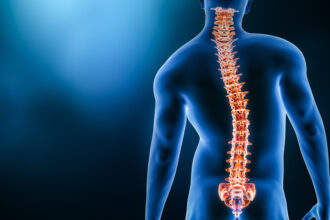A pioneering study by The University of Texas Health Science Center at San Antonio (UT Health San Antonio) reveals that sustained adherence to a ketogenic diet could accumulate senescent or prematurely aged cells in healthy tissues, notably impacting heart and kidney functions. Conversely, the study suggests that adopting an intermittent approach to the ketogenic diet, incorporating regular breaks, mitigates these pro-inflammatory cellular effects.
This research highlights that while ketogenic diets can offer health benefits, they are most effective when interspersed with planned intervals of dietary relaxation.
David Gius, MD, PhD, assistant dean of research and professor at the Department of Radiation Oncology in the Joe R. and Teresa Lozano Long School of Medicine at UT Health San Antonio, and associate cancer director for translational research at the institution’s Mays Cancer Center, who is the lead author of the study, emphasized the significance of these findings. “Considering that 13 million Americans follow a ketogenic diet, our research underscores the necessity of periodic breaks from the diet to avoid potential long-term health issues,” he stated.
The study, “Ketogenic diet induces p53-dependent cellular senescence in multiple organs,” was published on May 17 in Science Advances. Collaborators include researchers from the Department of Radiation Oncology and Mays Cancer Center, the Sam and Ann Barshop Institute for Longevity and Aging Studies, the Center for Precision Medicine, the School of Nursing, and the Division of Nephrology in the Department of Medicine at UT Health San Antonio, and the Houston Methodist Cancer Center and Houston Methodist Research Institute.
Despite its popularity, a ketogenic diet, which is high in fats and low in carbohydrates, leading to ketone production by the liver, can also trigger pro-inflammatory responses. The new findings demonstrate that mice of various ages on two distinct ketogenic diets showed signs of cellular senescence in critical organs such as the heart and kidneys. However, these adverse effects were either reversed with senolytics—molecules that can eliminate senescent cells—or avoided through the strategic use of intermittent dieting.
Gius added, “As cellular senescence contributes to the pathology of various organ diseases, our findings are crucial for understanding how to use a ketogenic diet effectively. Like with other nutritional strategies, it’s essential to periodically pause the ketogenic regimen.”
More information: Sung-Jen Wei et al, Ketogenic diet induces p53-dependent cellular senescence in multiple organs, Science Advances. DOI: 10.1126/sciadv.ado1463
Journal information: Science Advances Provided by University of Texas Health San Antonio








